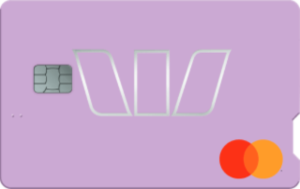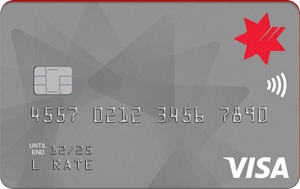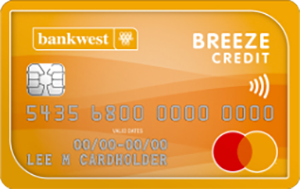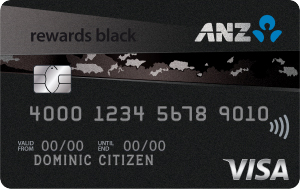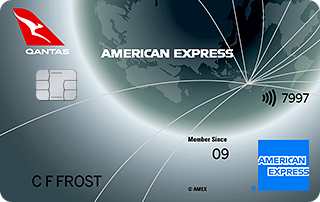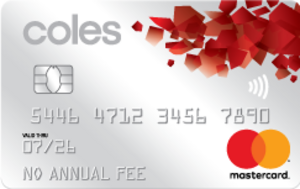
Hi, I’m a personal finance expert who loves to help you out! I’ll answer your question within a business day. Pinky swear.

As more and more people opt for plastic over cash the cost of credit card repayments is reaching new heights. This year has seen credit card use increase significantly, with data from the Reserve Bank of Australia showing $19.9 billion worth of transactions made on credit cards in July alone and a total debt of $49.4 billion.
While everyone’s methods for personal finances are different, any of the tips below should help in some way if you are struggling to meet credit card payments.
“Compound interest is the eighth wonder of the world. He who understands it, earns it … he who doesn’t … pays it.”
Albert Einstein was the one who said that pearl of wisdom. He also called compound interest the ‘greatest force in the universe’ and believe us when we tell you that banks and credit card providers understand this concept better than pretty much anyone else. If you’re looking for a balance transfer offer or have credit card debt, you could be affected by the ‘universal force’ of compound interest.
You’ll soon realise that every month more interest is added to the principal amount you owe, and interest is charged daily on that whole amount, every single month, until you’ve gotten rid of the whole balance on your credit card (that’s what compound interest is). You make payments but if you aren’t paying enough, all you’ll be doing is paying off interest and your net credit card debt will slowly go nowhere. If you find yourself saying ‘but I can’t afford much more than the minimum payment’ then keep reading. There is a way out of the problem, and a way to deal with compound interest.
Finding the right repayment amount
When considering a balance transfer deal there are two key questions to ask yourself:
1) Will your credit history and credit file help or harm your chances of getting a balance transfer?
Balance transfer offers are usually give to people in solid employment, with few or no defaults on their credit file, and who rarely or never make a late payment for any reason. If you’re unsure of your credit history or haven’t checked it in more than six months, you can get a free credit check and see what’s on it. This lets you deal with any issues that might appear or correct any errors before applying too, to give yourself the best chance of succeeding.
2) Do you need longer than the introductory period to pay off the balance owing on your card?
It’s important to be realistic when calculating what you can pay back each month. If you can supercharge your repayments and knock off $500 or more each month, then great, a 6 months balance transfer offer might be plenty for you, but if you have other obligations and debts, or want to maintain a certain lifestlyle, then you may be interested in a longer balance transfer period. Consider 12 month balance transfer deals if that’s you. If the answer is still no, there’s no need to panic, and you can still minimise the interest you pay if you work out a sensible amount above the minimum that you can pay back on time every month.
In all reality many people will finish a balance transfer offer with at least some card debt still there. The first statement after the initial 0% interest period can be a rude shock and a minimum of $30-$50 in interest charges starts to appear on your credit card for those with credit card debt around the national average for Australia (currently around $3262). If you are stuck at this point, at or near the end of a balance transfer offer, you need to manage repayments which now include interest. It is also generally advised to wait a minimum of a few months before making a fresh application for credit (such as another balance transfer), so being able to manage for at least a few months is important.
Steps to minimise interest charges after the deal ends
1) Scour your bank’s credit card options and look for a card with a lower purchase interest rate
(if you’re not on the low rate card already). Contact the bank and ask about moving the balance to a low rate card. Make sure the purchase rate will apply, not the cash advance rate. This is known as a card swap, and when you do it with your existing bank there isn’t usually a lot of fuss to process it. You shouldn’t need to go through another application process, it will be a simple phone call or request via online banking to get your new card, and close down the old card.
2) Ramp up up your repayments as much as possible.
Throw what you can each month onto your repayments, above the minimum (usually as little as 2-2.5%). We’ve shown how much difference this will make in the tables below. Every dollar over and above the interest amound, or the minimum monthly repayment is ‘supercharged’ and will reduce the principal balance. This is where compounding can work for you, as your repayment and interest amounts reduce the more you pay off.
3) Salary Sacrificing
Debts well above the average $3000 could take years to pay off, but one option that is often not considered is salary sacrificing.
In this kind of arrangement an employer will offer additional financial benefits as part of the salary package, which can mean you pay less taxes upfront and also develops more regularity for debt repayments.
While most people know it can be used to help with mortgage payments, many do not realise that the Australian Taxation Office will allow other personal loan facilities, like credit cards, to be part of a salary sacrifice arrangement.
What to do when repayments suddenly include interest
The best way to describe the impact of repayments is by examples. So, for those who have some balance owing, and attracting interest (anywhere between 12-20% usually), take a look at the difference paying more than the minimum amount each month will make. For the examples below we’ve assumed you have moved your balance to a low rate card, with around 13% interest. If you haven’t yet, go back to step 1) above and do that first.
Making minimum monthly repayments only
| Interest Rates | |||
| 13% | APR (Annual Rate) | ||
| 0.00036 | Daily Rate | ||
| 0.01086 | Monthly Rate | ||
| Monthly Pay Off | Outstanding Balance | Monthly Interest charges | |
| Month 1 | – | $5,000.00 | $54.32 |
| Month 2 | $150.00 | $4,904.32 | $53.28 |
| Month 3 | $147.13 | $4,810.46 | $52.26 |
| Month 4 | $144.31 | $4,718.40 | $51.26 |
| Month 5 | $141.55 | $4,628.11 | $50.28 |
| Month 6 | $138.84 | $4,539.54 | $49.31 |
| Month 7 | $136.19 | $4,452.67 | $48.37 |
| Total Interest Paid | $359.06 | ||
#Calculations on an example only. The actual methods used or calculations used by the banks may vary.
It’s easy to see in this example that the main debt doesn’t get reduced by much in that time. The interest paid to the bank in those months is still in the hundreds of dollars too.
Paying 10% of the total capital monthly
Here’s what happens to the interest and the debt when you repay 10% of the outstanding amount each month, in this example $500 each month instead of just $150 or 3%. Not only does the principal debt reduce by much more, to $2,252.21 compared to $4,452.67, but the total interest charges also add up to $82.32 less over the 6 month period (that number only goes down as the principal amount goes down too)#.
| Interest Rates | |||
| 13% | APR (Annual Rate) | ||
| 0.00036 | Daily Rate | ||
| 0.01086 | Monthly Rate | ||
| Monthly Pay Off | Outstanding Balance | Monthly Interest charges | |
| Month 1 | – | $5,000.00 | $54.32 |
| Month 2 | $500.00 | $4,554.32 | $49.47 |
| Month 3 | $500.00 | $4,103.79 | $44.58 |
| Month 4 | $500.00 | $3,648.37 | $39.63 |
| Month 5 | $500.00 | $3,188.00 | $34.63 |
| Month 6 | $500.00 | $2,722.63 | $29.58 |
| Month 7 | $500.00 | $2,252.21 | $24.47 |
| Total Interest Paid | $276.67 | ||
#Calculations on an example only. The actual methods used or calculations used by the banks may vary.
Why bother with ‘minimum payment’ amounts?
When people discover that paying the minimum monthly amount off their credit card won’t be doing much at all to reduce the debt, many get really disheartened and this can make the whole problem worse. Before telling yourself that the situation is hopeless, simply focus on paying anything you can above the minimum monthly payment. Each dollar you pay in addition to the interest charges goes off the principal debt. As the debt goes down, even a little, your next payment will be less too. Even keeping payments at around twice the minimum payment, if you can manage it, will greatly improve your situation. Instead of facing credit card debt that lasts longer than a mortgage and paying many times the original amount in interest, you’ll only be paying the card off for a couple of years (between two and three in many cases, but it depends how much you owe). You’ll also see immediately how many thousands of dollars you won’t end up paying in interest. We know Einstein would have wanted you to harness the force of compounding interest for your own good, not the good of the banks, so use the tools available to do just that and when appropriate look around for a low rate deal, another balance transfer offer or find ways to earn more money to pay down the debt sooner.
Particularly for people who find bills all come the same time, putting a small amount of money towards credit card debt each month might be a better solution than leaving it til the last minute.
Conclusion
People who are not happy with their current credit card may find that taking advantage of balance transfer offers will help them meet repayments and clear debts faster because of the lower rate of interest.
The key to getting the most out of one of these deals is to check all the conditions and be aware of how long the introductory period is so that you can budget payments around it.
Credit card repayments can be a struggle for anyone but finding a method that works for you and keeping your options open will help you stay on the right track.

Pauline Hatch
Pauline is a personal finance expert at CreditCard.com.au, with 9 years in money, budgeting and property reporting under her belt. Pauline is passionate about seeing Aussies win by making their money – and their credit cards – work smarter, harder and bigger.
You might be interested in
Recently Asked Questions
Something you need to know about this card? Ask our credit card expert a question.
Ask a question
Hi, I’m a personal finance expert who loves to help you out! I’ll answer your question within a business day. Pinky swear.




